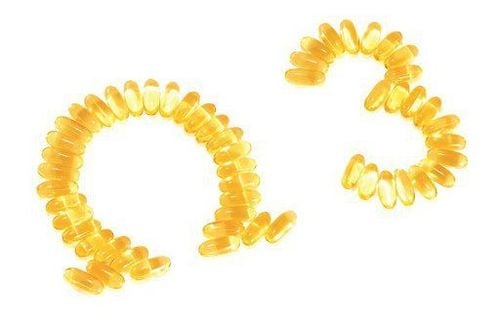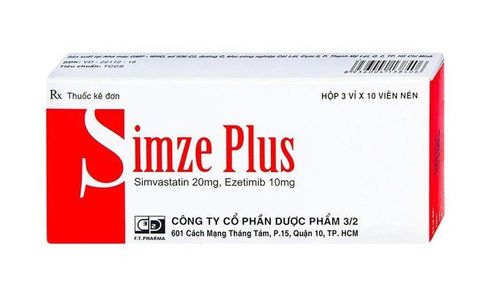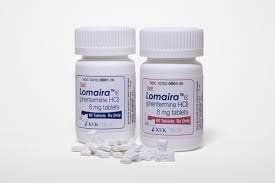This is an automatically translated article.
Fat is an essential part of the body's nutrition, nutrition from fat helps to improve cardiovascular diseases. Fat is one of the body's essential energy sources, improving cardiovascular health. Add foods rich in heart-healthy fats every day for a healthy and vibrant heart.1. Fat
Fat is a form of Lipid. They belong to the group that provides energy, along with carbohydrates and protein, but fats provide the most concentrated source of energy. Fats consist of a group of compounds that are soluble in organic solvents and are generally insoluble in water and lighter than water.
Fat is an essential part of the body's nutrition
Essential energy supplement Fat is an abundant source of energy. It provides 9 calories per gram, while protein and carbs each provide only 4 calories per gram. Fat stores in the body to help protect organs, keep the body warm and provide an abundant source of energy when hungry.
Regulate hormone and gene activity Fats regulate the production of reproductive hormones and steroids, as well as genes involved in growth and metabolism.
Supports brain development Getting the right amount of fat is important for the brain, including mood.
Transport absorption of soluble vitamins Vitamins A, D, E and K must be taken with fat for best absorption.
Enhances taste and satiety Adding fat to foods makes them tastier and fuller.
2. Fat is good for the heart
The higher the amount of fat in the body, the higher the risk of dying from a heart attack. Many international studies have concluded that, in a Japanese diet with 25% fat per meal, the rate of death from heart disease is only 52/100,000 of the population; Meanwhile, Americans consume 42% of their diets with fat, and the death rate from heart attacks reaches 306.6 per 100,000 of the population.With Vietnamese nutrition, the fat required for each serving must reach from 15 to 20% of the total energy value of the whole diet. With adulthood, it is advisable to limit fats of animal origin and instead have fats of vegetable origin. Plant-based fats should be included in 2⁄3 of the total lipids per serving.
Unsaturated fatty acids Unsaturated fatty acids have the ability to reduce total cholesterol, harmful cholesterol and maintain good cholesterol for the body.
This type of fat is commonly found in seed oils, such as canola, peanut, olive, avocado ... or in vegetable oils: sunflower, soybean, corn, sesame, soybean, and soybean. types and grains of all kinds...
Omega-3 fatty acids Omega-3 fatty acids are fatty acids derived from plants, they help prevent, prevent and have a very effective effect on diseases. about cardiovascular. The types of fish, or fish oil will have many fatty acid components such as: DHA, EPA. Many studies have shown that omega-3 intake in the body not only lowers blood cholesterol but also reduces triglycerides. Omega-3 fatty acids have the ability to prevent arrhythmias, ventricular fibrillation, or thrombosis, and it also helps regulate blood pressure in mild high blood pressure.
This fatty acid is found in many vegetable oils: rapeseed, soybean... and oil-containing seeds: peanut, sesame...
Omega-3 rich diet reduces 50 % risk factors for death from coronary heart disease.
Omega-6 Fatty Acids Omega-6 fatty acids, this is a form of unsaturated fatty acids, are found in many vegetable oils: peanuts, sesame, corn, rapeseed, sunflower, soybean.
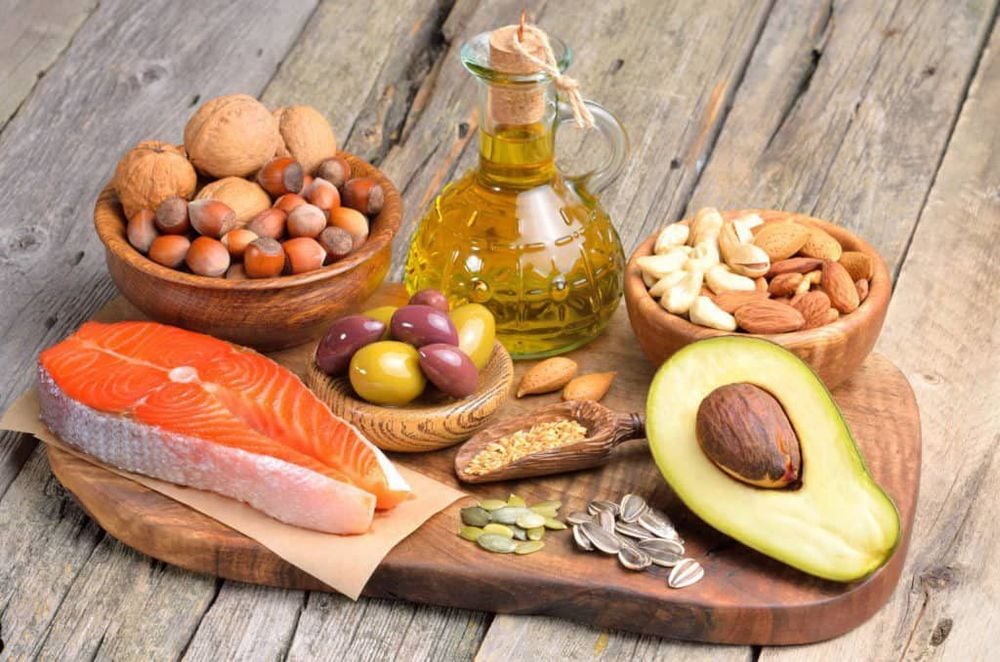
Các axit béo omega-6
A diet with 7 to 10% of total energy from omega-6, omega-3 helps reduce cholesterol by up to 20%, and reduces the risk of atherosclerosis by more than 35%. owner.
Therefore, the family should maintain a serving of 2 to 3 fish meals per week. Not only that, all seafood itself contains an adequate amount of omega-3, even at the lowest lipid ratio. For those of you who do not like fish and seafood, you should supplement with fish oil every day.
Notes in daily fat processing
Animal fats, also known as fats, often contain a lot of saturated fatty acids, which are easier to solidify, so they should be used for cooking and frying. Meanwhile, vegetable fats have a lot of unsaturated fatty acids and unsaturated fats, often have a lower freezing point, should be used to eat directly such as salad dressing, mixed with porridge in the diet of the family. small children young children.
3. Foods containing good fats for the heart
Olive oil Olive oil is rich in unsaturated fats, and is especially good for the functioning of the blood vessels. It can help replace saturated fat such as: animal fat, butter, cheese.... Olive oil helps reduce harmful cholesterol in the blood. This is a very good food source for the cardiovascular system, it also helps to supplement and provide polyphenols - a substance that prevents bad cholesterol components from entering the walls of blood vessels in the body.
Nuts Almonds, walnuts, or macadamia nuts all contain a lot of omega-3 fatty acids and unsaturated fats that are good for regulating heart rhythm. Flaxseeds contain a lot of fiber, omega- 3 and omega-6, just a handful of flaxseeds can help keep your heart healthy for a long time. Every morning, you should add a little flaxseed sprinkled on oats or crushed cereal to promote heart health. Not only that, the cereals also help add fiber to the nutrition every day.
Legumes Legumes such as lentils, chickpeas, black beans, and kidney beans are all rich in omega-3s, calcium, and soluble fiber. Or soybeans help lower cholesterol and other substances. saturated fat, so soybeans are a heart-healthy food. You should eat natural soybeans, such as edamame (Japanese soybeans), tempeh (Indonesian soybeans), or tofu. .
Oatmeal
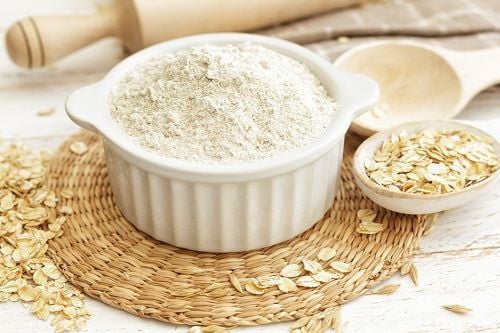
Trong bột yến mạch có rất nhiều omega-3, axit folic, và kali
Oatmeal has a lot of omega-3, folic acid, and potassium. This is a high-fiber food that can help reduce bad cholesterol levels in the body and help keep blood vessels open. Oatmeal is rich in omega-3, folic acid, and potassium.
Fish Fish is rich in omega-3, which is not only anti-inflammatory but also fights cardiovascular diseases, and helps reduce bad cholesterol and triglycerides in the blood. The top omega-3 rich fish is salmon.
Salmon will help lower blood pressure and prevent the formation of blood clots. Need to maintain the diet 2 times a week, will help you reduce your risk of having a heart attack by a third. Salmon contains the carotenoid astaxanthin, which is a very powerful antioxidant. But for better performance, you should choose wild-caught salmon over farmed fish for sale, because farmed fish can be contaminated with pesticides and heavy metals.
If you don't like salmon, you can try other oily fish like mackerel, tuna, and herring that can also help you have a healthy heart with the same effect.
Please dial HOTLINE for more information or register for an appointment HERE. Download MyVinmec app to make appointments faster and to manage your bookings easily.




